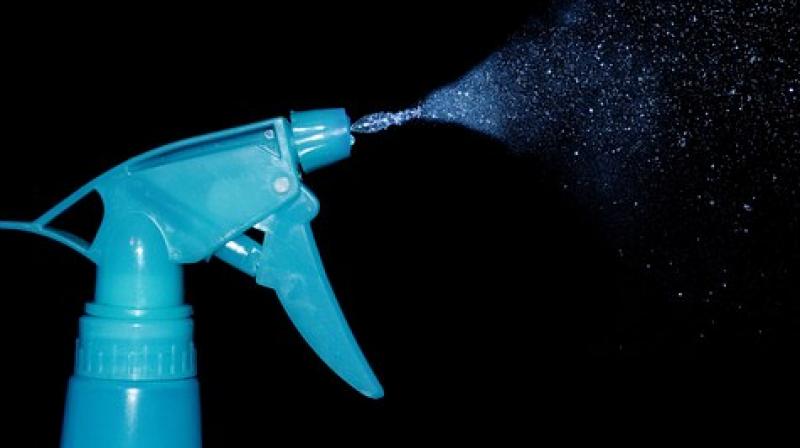Cleaning sprays damage lungs as much as regular smoking: Study

Using cleaning sprays can cause a decline in lung function comparable to the damage seen in regular smokers, a study warns.
Researchers at the University of Bergen in Norway analyzed data from 6,235 participants in the European Community Respiratory Health Survey.
The participants, whose average age was 34 when they enrolled, were followed for more than 20 years.
"While the short-term effects of cleaning chemicals on asthma are becoming increasingly well documented, we lack knowledge of the long-term impact," said Cecile Svanes, a professor at University of Bergen.
"We feared that such chemicals, by steadily causing a little damage to the airways day after day, year after year, might accelerate the rate of lung function decline that occurs with age," Svanes said.
The study found that the accelerated lung function decline in the women working as cleaners was "comparable to smoking somewhat less than 20 pack- years."
That level of lung impairment was surprising at first, said Oistein Svanes, a doctoral student at University of Bergen.
"However, when you think of inhaling small particles from cleaning agents that are meant for cleaning the floor and not your lungs, maybe it is not so surprising after all," he said.
The decline in lung function is attributable to the irritation that most cleaning chemicals cause on the mucous membranes lining the airways, which over time results in persistent changes in the airways and airway remodelling.
The study did not find that the ratio of FEV1 to FVC declined more rapidly in women who cleaned than in those who did not.
The metric is used when diagnosing and monitoring patients with chronic obstructive pulmonary disease, or COPD.
The study did find that asthma was more prevalent in women who cleaned at home (12.3 per cent) or at work (13.7 per cent) compared to those who did not clean (9.6 per cent).
The study also did not find that men who cleaned, either at home or at work, experienced greater decline in FEV1 or FVC than men who did not.
The researchers took into account factors that might have biased the results, including smoking history, body mass index and education.
"The take home message of this study is that in the long run cleaning chemicals very likely cause rather substantial damage to your lungs," Oistein Svanes said.
"These chemicals are usually unnecessary; microfibre cloths and water are more than enough for most purposes," he said.

